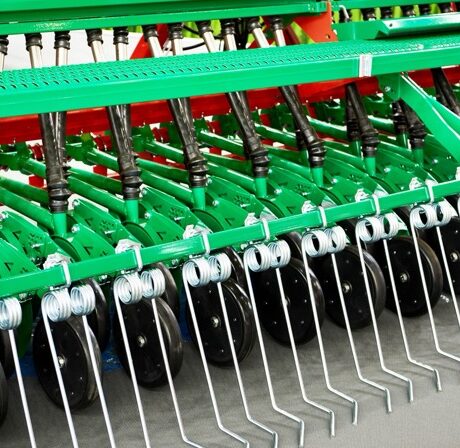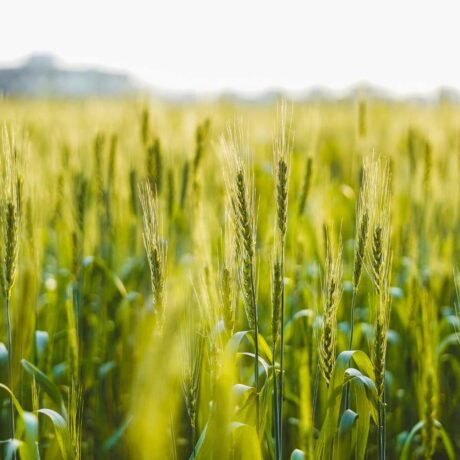British Farming at the Heart of the UK Food Strategy
Louise Penn
Jul, 22 2025As advisors working in farming and the food supply chain, we see the challenges our food system faces from the ground up. We understand the pressure on farm businesses, the volatility of markets, and the strain of trying to grow nutritious food under mounting environmental and economic pressures. We’re also in a privileged position, many of us have access to locally grown food, and we’re more aware of the choices we make around food.
But the issues we face don’t stop at the farm gate. They ripple through the entire food system – impacting public health, environmental sustainability, and long-term food security.
The government’s new UK Food Strategy policy paper lays bare the scale of the challenge. The statistics are stark:
- Health costs: Obesity-related ill health is estimated to cost the NHS over £11.4 billion annually, with wider societal costs of £74.3 billion.
- Rising obesity: 64% of adults in England were overweight or obese in 2022, double the rate since the 1990s.
- Environmental stress: Agriculture accounts for 69% of UK land use and is both reliant on, and a contributor to ecosystem decline. 40% of inland water bodies are polluted by agricultural runoff.
- Climate impact: The UK food system (including imports) contributes 38% of the UK’s total GHG emissions; agriculture alone is 11.7%.
- Food price inflation: Food prices rose 36% between January 2021 and April 2025, three times the rise of the previous decade.
The paper does rightly acknowledge that British food is among the best in the world. Farmers know this better than anyone, but we need a system where everyone can access healthy, nutritious, locally grown, affordable British food. To do that, we must have a resilient and sustainable food system.
The first mention of farmers in the paper is when it introduces its “new approach” centred on people, both consumers and those who grow our food. There is also a clear admission in farming that “the market does not adequately reward more environmentally friendly production”.
This felt like it was beginning to change with the introduction of SFI (Sustainable Farming Incentive) and growing market support for regenerative and low-input farming. But right now, tightening margins, unstable markets, government indecision, and another tough harvest are putting enormous pressure on farm businesses.
The strategy proposes a transition towards what it calls a “Good Food Cycle” – a system that supports health, growth, sustainability, resilience, and culture. It outlines 10 priority outcomes:
Healthier & More Affordable Food
1. A food environment that supports healthy, sustainable choices.
2. Equitable access to safe, affordable, nutritious, and appealing food.
Good Growth
3. Conditions for the food sector to grow sustainably — fairer supply chains, investment in productivity and innovation.
4. Attract and train a skilled workforce.
Sustainable & Resilient Supply
5. High environmental standards, reduced waste, high animal welfare.
6. Trade that supports British standards and export growth.
7. Resilient domestic production of healthier food.
8. Preparedness for supply chain shocks and long-term risks.
Vibrant Food Cultures
9. Celebration of UK, regional, and local food cultures.
10. Increased connection between people and food systems, with knowledge and confidence to cook and eat healthily.
Nowhere in those 10 outcomes is a thriving, profitable, resilient farming sector explicitly listed — but it underpins them all.
British farming can (and already does) produce healthy, nutritionally rich food. With investment and long-term vision, it can also become significantly more sustainable. Given the right conditions (certainty, stability, and fair reward), UK agriculture can be a cornerstone of global food system resilience.
Having recently spent two days at Groundswell, it’s clear that a shift is underway at the farm level. And across the country, farmers, advisors, and food businesses are already trialling solutions and innovations that align with the evolving strategy. However, while momentum is building, scaling these efforts will require thoughtful, well-aligned policy that reflects the ambition and ingenuity already present in the field.
A food system that works for farmers, the environment, and society is within reach – but it will take collaboration, flexibility, and a willingness to learn from what’s working on the ground.
Overall, it’s not just about growing food; it’s about reconnecting people with where food comes from, how it’s grown, and who grows it. Farming has the potential to bridge the gap between health, environment, culture, and community. We must recognise the central role farmers can play and consider it, not as an afterthought, but as the foundation of a successful food future.
You don’t have to face the challenges alone
At Ceres Rural, we understand the pressure on farm businesses, the volatility of markets, and the strain of trying to grow nutritious food under mounting environmental and economic pressures. For more information and guidance, contact our Consultants today.






